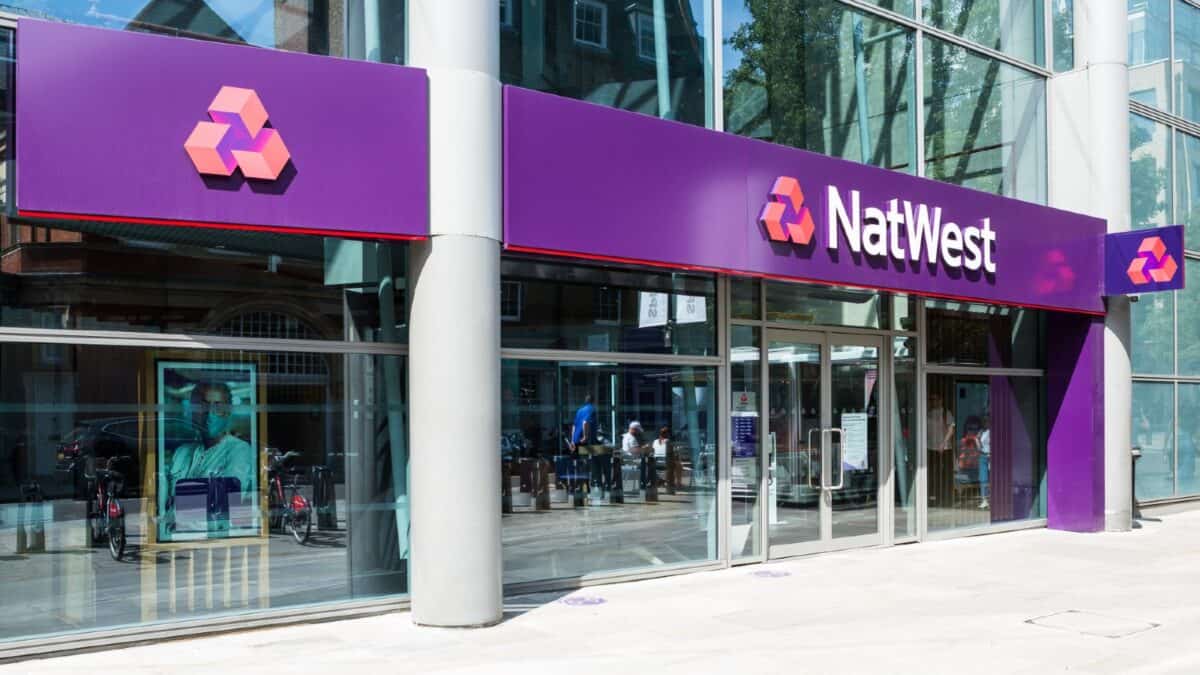The NatWest Group (LSE: NWG) share price dipped a couple of percent in early trading Friday (24 February), even though the bank posted a strong set of full-year results and provided upbeat guidance up to 2027.
Still, it’s been one of the FTSE 100 success stories of 2024. And a lot of people will surely be taking some profit off the table.
The 2024 bottom line showed a 12% rise in earnings per share (EPS) to 53.5p. And the full-year dividend was lifted 26% to 21.5p. On Thursday’s closing price, that’s a price-to-earnings (P/E) ratio of 8.2, and a 4.9% dividend yield. Does that sound overpriced after the year’s doubling? Not to me.
Cracking returns
A 17.5% return on tangible equity (RoTE) stood out to me, boosted by a RoTE of 19% in the final quarter. It easily beat the 10.5% reported by Barclays this week, and the 13% that Lloyds Banking Group expects for the year.
NatWest guidance suggests a 15%-16% RoTE for the 2025 year, with at least 15% up to 2027. Add a Common Equity Tier 1 (CET1) ratio of 13.6%, expected to continue at 13%-14%, and I’m not seeing any likely liquidity problems.
The government’s stake, held since the bailout of what was then Royal Bank of Scotland, is now under 7% after the Treasury recently disposed of nearly 80m shares. CEO Paul Thwaite told us “2025 is also likely to be the year that NatWest Group returns to full private ownership.”
The prospect of continuing government offloading has been a threat hanging over the share price, but thankfully that’s nearing its end.
Rates and interest
Interest rates are a key thing for investors in bank shares to watch out for. After the Bank of England’s decision to cut base rates to 4.5%, a mortgage price war is already kicking off. Banco Santander and Barclays have announced limited offers of under 4%. And Nationwide says it’ll lower some rates.
Against that backdrop, NatWest shareholders should be buoyed by the bank’s 2.13% net interest margin for 2024. That’s one basis point above 2023 — not a lot, but not a fall. But it’s still something that could hamper bank profits in the coming year.
Bad debts are another threat, especially if we see inflation remaining stubbornly high. On that score, NatWest looks to have done well in 2024. It reported “a net impairment charge of £359m for 2024, or 9 basis points of gross customer loans, with levels of default stable.” Again, that’s reassuring, but investors need to keep their eyes open.
Cautiously optimistic
What about the lack of excitement shown in the NatWest share price in response to these results? It suggests to me that the market sees bank stock valuations as high enough for now. And with UK economic growth prospects still looking shaky, I suspect the market might have it right. Share prices might be in for a flat 2025.
I’m bullish about the long-term outlook for UK bank stocks. Right now though, I think there might be better yields for dividend investors to consider chasing.





